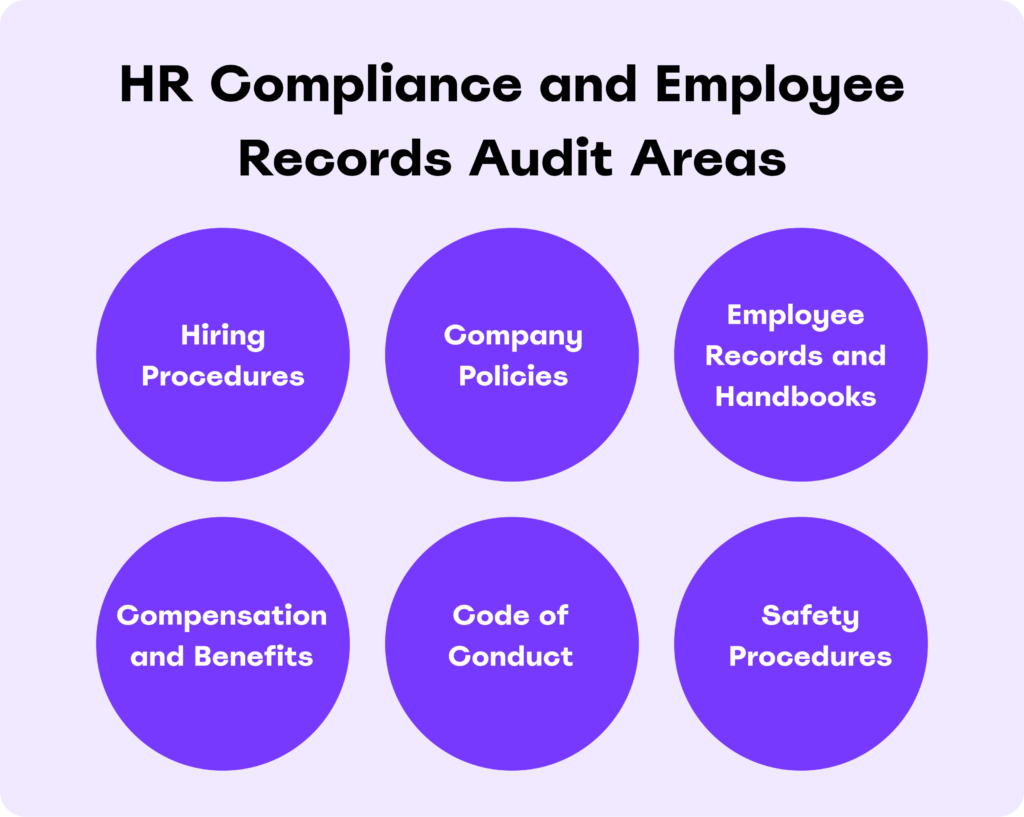“Quality means doing it right when no one is looking.” — Henry Ford
This principle perfectly fits into the realm of employee records management. While these files may not be the focus of daily scrutiny, their accuracy and completeness are paramount.
A single error in the documentation can lead to significant consequences, affecting compliance, legal standing, and organizational integrity.
An employee records and compliance audit serves as a critical tool to assess how well the information is managed and whether it aligns with legal requirements and organizational policies.
What Areas Do We Audit?

What Do We Assess?
- Information Accuracy
- Compliance with State Legal Requirements
- Confidentiality and Security Measures
- Non-Discriminatory Practices
- Accessibility of Policies and Records
- Policies Regarding Record Keeping
Our Employee Personnel File Audit Checklist provides a comprehensive framework for evaluating employee personnel files. It can also serve as a foundation for creating tailored audit checklists for other areas within your organization. Whether you’re evaluating handbooks or hiring processes, the principles of thoroughness and attention to detail remain the same.
As your audit process aims not just to evaluate current HR practices but also benchmark them against relevant laws and regulations, you may need to refer to the following regulations:
-
Fair Labor Standards Act (FLSA): Governs minimum wage, overtime pay, and record-keeping requirements in the U.S.
-
Title VII of the Civil Rights Act: Prohibits employment discrimination based on race, color, religion, sex, or national origin.
-
Age Discrimination in Employment Act (ADEA): Protects workers aged 40 and over from age-based discrimination.
-
Americans with Disabilities Act (ADA): Requires employers to provide reasonable accommodations for employees with disabilities.

